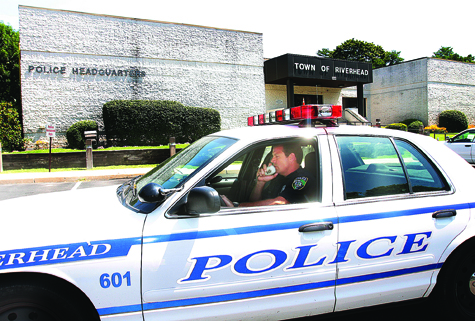Bridging the police divide; locals think obstacles can be overcome
Joe Hartmann, a student at Riverhead High School, shook his head at the thought of becoming a police officer.
“That’s not my thing,” Mr. Hartmann, a black teen, said outside the school this week, as his friends nodded around him. “I don’t associate with snitches.”
Lingering distrust of the police department, community members believe, is a main contributor to difficulties in recruiting local minorities to join the Riverhead Police Department, which records show is the least diverse among town departments serving the North and South forks.
Just two of Riverhead’s 85 officers are black, according to personnel reports, and there are no native Spanish-speakers or Hispanics. Town authorities say they can only choose from among applicants who take the exam, but experts, other police administrators and community leaders say the town could do more to recruit and encourage minority candidates.
“Having … black officers is making a difference, but you can’t have one or two,” said Antonio DeGrasse, who once served as a disciplinarian at Riverhead schools and now tutors students for the SAT exam. “You need to reflect the community.”
Mr. DeGrasse said blacks in Riverhead could be ostracized by friends and relatives if they chose to become a cop.
“It’s almost like the black people think you sold out,” he said. “No matter what you say, they’re not going to trust you. Peer pressure is peer pressure, whether you’re 40 or 14.”
Sister Margaret Smyth, who runs the North Fork Spanish Apostolate to assist Hispanics on the North Fork, said that much could still be done to recruit young teens who will soon be old enough to take the test. No officer has ever come to her center to try to recruit, she said. And more could be done to get around the language barrier between Hispanics and police, which she said often leads to miscommunication and arrests that could be avoided.
But while there are challenges ahead, efforts have been made in recent years to bridge the perceived divide between police and minority communities.
Police Chief David Hegermiller said all cops have language-teaching software installed in their cruisers for them to use if they choose. The department also attends job fairs at Riverhead High School and works with the Council For Unity, a school group devoted to addressing issues of race and diversity. The school, which is significantly more diverse than the general population, is a prime recruiting ground for future officers, Mr. Hegermiller and experts said.
Sister Margaret also said she’s received generous donations from individual police officers to her center, and Mr. DeGrasse said that tensions within the black community are much lower today than they used to be.
Those changes may mean future generations will be more likely to take the police exam.
As he walked outside Riverhead High School after school, freshman Marcus Bartlett said he would like to be a officer someday.
“I think it’d be an adventure, and a chance to do some good,” he said.









